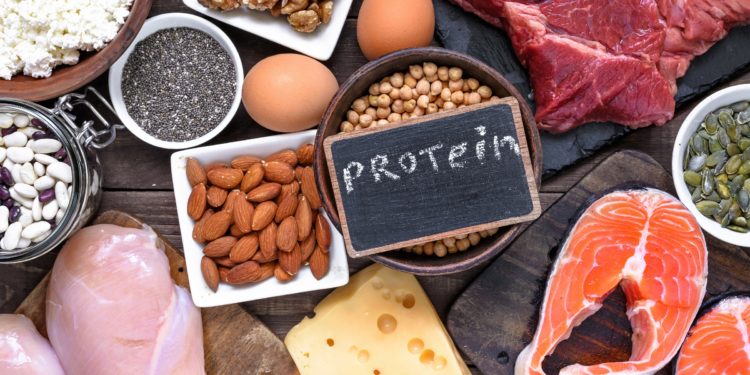Proteins: How good are enriched foods?
Whether bread, cereal or milk drinks: food with the extra dose of protein are already longer in the Trend. These products are supposed to make up right, slim and in muscle building help. But is it really?

In addition to carbohydrates and fats, proteins (protein), include nutrients to the energy-providing macro. If over a longer period of time is not a sufficient protein supply is taking place, the metabolism of the physiological balance, a reduction of muscle mass begins, explains the consumer on your website. Some people use it on food with a protein additive. However, such products are recommended actually?
Protein rich diet for losing weight
Many of those wanting to lose weight put on a diet with lots of protein. A higher protein intake is associated with a longer duration of saturation, writes the centre for diet of Baden-Württemberg on its website.
Those who consumed more Protein, less Hunger and take in fewer calories. A diet high in protein can therefore lead to greater weight loss compared to a diet with low protein content. Therefore, some people who want to lose weight, but also sports driving to a food with a protein additive.
Enriched products are in the Trend
He who makes Sport that needs a lot of protein – this (apparent) Knowledge is seared in the memory, writes the consumer advice centre Bremen in a recent communication. And for these proteins to be incorporated, there are numerous fortified products, from protein-chocolate-toast -pudding and drinks. These foods are really necessary?
In a market check, the consumer advice centre Bremen has seen several products that claim to be especially rich in proteins.
Protein requirements through a balanced diet covered
The German nutrition society (DGE) suggests that healthy people need at the age of 19 to 65 years of age 0.8 g of Protein per kilogram of body weight. Children and seniors need about a gram per kg of body weight. These quantities are in this country exceeded with a balanced diet mostly. But what of the Sports?
Only athletes who move more than five hours in the week to be physically active, according to the experts, in fact, a higher consumption. Depending on the sport, you may need between 1.2 and two grams of Protein per kg of body weight.
“But since your total energy requirements are higher, you eat even more. In a balanced diet of protein requirements will be met,“ explains Sonja roadside Becker, a consultant for food and nutrition in the consumer advice centre Bremen.
Additives and artificial flavors
The consumer advice centre Bremen has lists now online the ingredients and nutritional value tables from 19 products, mainly milk-based, considered to be the Protein from 20 to 40 grams per Cup to advertise.
Some of these products were spoons, for example, yogurt or Pudding, others, such as for example yoghurt drinks are more likely to Drink. The sugar contents of the beverages were usually in the middle of the range.
“The nutritional values of the products of the spoons are in order”, puncture-Becker, “the sugar content is predominantly in the low range and also the fat content is usually low.” But to reach this nutritional values and at the same time have a food that many consumers tastes indoor and consumers, to be additives and artificial flavors are used.
According to the figures, the Süßgeschmack is achieved in twelve of the 19 products, among others, by sweeteners. Nine products will be used according to the consumer advice centre Bremen is an enzyme, the milk sugar splits, and thus, for a sweeter taste. As a result, the milk products and lactose are some of the free.
“Also, thickeners and stabilizers are commonly used. In 14 of the 19 products, thickening agents and in seven products, stabilizers,“ says roadside Becker. It will go on without these additions, show four products, which can do completely without any additives and flavors.
In addition, 15 products are added ingredients are flavourings. Mostly it is aromatic substances, which do not originate from the fruit that you taste. Only in two products, natural fruit flavor “and” natural fruit flavor “was used with other natural flavors”. They originate at least partially from the designated fruit.
Three times as expensive as quark
The protein levels are between five and 11.4 g per 100 g. In comparison, normal quark contains twelve grams per 100 g and is therefore at least as suitable proteins.
The tested products are between 0,29 and 0.94 euros for 100 g. “The average product with 0.49 € is thus three times as expensive as, for example, a normal quark for € 0.18 per 100 g,” says roadside Becker.
The conclusion of the consumer: In the case of a well-balanced diet of protein enriched foods are not necessary, they usually contain many additives and are significantly more expensive than the good Alternative to quark. (ad)
